To know if a cat ate her kittens, check for any signs of distress, abnormal behavior, or a sudden decrease in litter size. Introducing new kittens into the world is often an exciting and joyous time.
However, sometimes things can go tragically wrong. As a cat owner, it is imperative to be aware of any potential issues that may arise, including the possibility that a mother cat may eat her kittens. While this behavior is distressing to witness, there are ways to determine if this has occurred.
By observing the mother cat’s behavior and looking for signs of distress or a sudden decrease in litter size, you can help determine if she has indeed eaten her kittens. This article will outline some of the common indicators to look out for, helping you to better understand this distressing behavior and take appropriate action if necessary.
Signs Of An Abandoned Nest
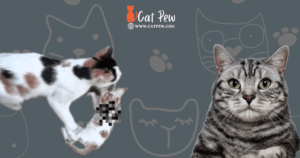
If you suspect that a cat has eaten her kittens, it can be a distressing situation for any pet owner. As heartbreaking as it sounds, there are signs you can look for to determine if a cat has abandoned her nest and possibly consumed her litter. By familiarizing yourself with the indications of an abandoned nest, you can take appropriate action and provide the necessary care for the mother cat and any remaining kittens.
Scattered Bedding Materials
One of the critical signs that may indicate a cat has eaten her kittens is the presence of scattered bedding materials in the nest. When a mother cat feels the need to abandon her kittens, she may become agitated and start moving the bedding around. This behavior can serve as an instinctive attempt to eliminate any traces of the kittens, making it difficult to identify their existence.
Absence Of Mother Cat
Another conspicuous sign of an abandoned nest is the absence of the mother cat. If the mother cat is no longer present in the nest and shows no interest in caring for her kittens, it could be an indication that she has consumed them. Normally, a mother cat would remain close to her litter, providing warmth, grooming, and nursing. Therefore, if there is a complete absence of the mother cat, it is crucial to investigate further.
Lack Of Nursing Sounds
A notable sign to watch for is the lack of nursing sounds coming from the nest. Mother cats typically emit low-pitched purring sounds during the process of nursing their kittens. The absence of such sounds can be a red flag. If you observe silence in the nest and no signs of the mother cat nursing her kittens, it could be an indication that the mother cat has eaten her litter.
By keeping a vigilant eye on these signs, you can determine whether a cat has abandoned her nest and eaten her kittens. Identifying an abandoned nest is crucial as you may need to seek veterinary assistance to ensure the well-being of the mother cat and to prevent any potential health issues that may arise. Remember, it is essential to handle this situation with care and consult a professional to understand the best course of action.
Assessing Physical Changes In The Mother Cat
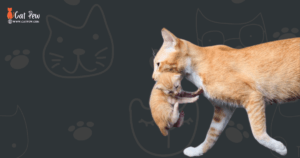
When it comes to determining whether a cat has eaten her kittens, it is important to pay close attention to her physical changes. Cats display specific signs after giving birth that you need to be aware of. In this section, we will explore three key indicators to help you assess if a mother cat has indeed consumed her offspring.
Checking For Enlarged Mammary Glands
One way to determine if a cat has eaten her kittens is by examining her mammary glands. After birth, a mother cat’s mammary glands typically become enlarged as they produce milk to nurture her young ones. Take note of any firmness, swelling, or discomfort around her nipples. An absence of mammary gland enlargement may suggest that the kittens are no longer present.
Observing For Bloody Discharge
Bloody discharge in a mother cat is another physical change that can indicate the fate of her kittens. Keep an eye on her vaginal area for any signs of bleeding, which could be a result of postpartum complications or consuming the kittens. If you notice excessive bleeding or bloodstains in her surroundings, it could be an alarming clue that the kittens are missing.
Monitoring For Weight Loss
Weight loss is a significant marker when determining if a mother cat has eaten her kittens. Post-birth, a mother cat’s weight should gradually decrease due to the loss of the kittens’ weight. However, noticeable and sudden weight loss may suggest that the kittens are no longer present. Regularly weigh the mother cat and keep track of any significant changes in her body mass.
By paying attention to these physical changes in a mother cat, you can assess whether she has eaten her kittens. Remember, it is essential to understand that cats may occasionally display changes in behavior and appearance due to factors unrelated to eating their offspring. If you are unsure or concerned, consulting a veterinarian is recommended.
Examining The Nest For Clues
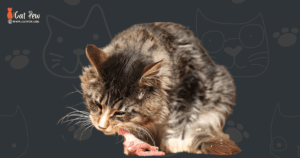
Discovering whether a cat has consumed her kittens can be distressing. Examining the nest for any distinct clues, such as missing kittens or signs of disturbance, may provide some answers. Pay close attention to the cat’s behavior and surroundings for any hints.
Looking For Signs Of Struggle Or Distress
When trying to determine if a cat has potentially eaten her kittens, one crucial step is to thoroughly examine the nest for any signs of struggle or distress. Keep in mind that while it is rare for a mother cat to harm her offspring, certain circumstances can lead to tragic outcomes. By carefully scrutinizing the nest, you may uncover clues that help you understand what transpired.
- Check for any disarray: Look for disarranged bedding or scattered objects within the nest. These physical indications may suggest that a struggle or disturbance occurred.
- Inspect for any bloodstains: Bloodstains are an alarming sign that something may have gone wrong. If you notice any spots or streaks of blood within the nest, it could indicate injury or trauma to the kittens.
- Observe for signs of abandonment: If the nest appears deserted, with no evidence of nursing or grooming, this could be a sign that the mother cat has abandoned her kittens or something unfortunate has happened to them.
Noticing Any Unusual Odors
In addition to visually examining the nest, it’s essential to be attentive to any unusual odors that may emanate from it. Paying attention to smells can provide vital clues about the fate of the kittens.
- Sniff for foul or unusual scents: An unpleasant or peculiar smell could indicate the presence of decomposition, suggesting that something unfortunate has happened to the kittens.
- Be aware of the absence of a typical newborn kitten scent: Newborn kittens have a distinct scent that their mother recognizes. If the nest lacks this characteristic odor, it may indicate that the kittens are no longer present.
- Take note of any strong odors: Strong smells, such as the scent of illness or infection, can indicate that the kittens may have been unwell or faced health complications.
Searching For Traces Of The Kittens
When investigating whether a cat has eaten her kittens or not, it’s crucial to thoroughly search the nest for any traces of the kittens. While it may be distressing to consider, finding evidence is an essential step in the process.
- Look for small body parts: In some unfortunate cases, you may discover tiny body parts or fragments within the nest, indicating that the kittens may have suffered a tragic fate.
- Search for remnants of the amniotic sac: If the mother cat ate her kittens soon after birth, remnants of the amniotic sac may still be present in the nest. This can be a distressing but telling sign.
- Check for any leftover umbilical cords: Another evidence to look for is the presence of leftover umbilical cords. If the mother has consumed her kittens, these cords may be absent, suggesting their fate.
Observing The Mother Cat’s Behavior
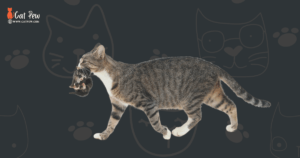
When it comes to understanding a cat’s behavior, observation is key. If you suspect that a mother cat may have eaten her kittens, carefully observing her behavior can provide some crucial clues. Identifying signs of anxiety or distress, watching for excessive grooming, and noting changes in the cat’s appetite are all valuable indicators that can help answer this distressing question. Let’s delve into each of these aspects in detail.
Table identifying Signs Of Anxiety Or Distress/table
One way to determine if a cat has eaten her kittens is by observing signs of anxiety or distress. Keep an eye out for unusual behaviors such as restlessness, pacing, or excessive meowing. These are signs that the cat may be experiencing stress or discomfort. Additionally, if the mother cat displays aggression towards other animals or seems excessively withdrawn, it could be an indication that something is amiss.
Watching For Excessive Grooming
Excessive grooming is another possible sign that a cat may have eaten her kittens. While grooming is a natural behavior for mother cats, if it becomes excessive or compulsive, it could be cause for concern. Look for signs such as excessive licking of the mammary glands or the area where the kittens were last seen. If the mother cat is excessively grooming herself, it may be a sign that she is trying to soothe herself in the absence of her kittens.
Noting Changes In The Cat’s Appetite
Changes in the cat’s appetite can also be indicative of whether or not she has eaten her kittens. If the mother cat suddenly exhibits a loss of appetite or is refusing to eat altogether, it may be a sign of distress or grief. On the other hand, some mother cats may experience an increased appetite when they have lost their kittens. This could be due to stress or seeking comfort through food. Pay close attention to any significant shifts in her eating habits as it may provide valuable insight into the situation.
By closely observing the behavior of a mother cat, you can gain valuable information about whether or not she has eaten her kittens. Identifying signs of anxiety or distress, watching for excessive grooming, and noting changes in the cat’s appetite can all contribute to understanding what may have happened. These observations can help provide clarity in this distressing situation.
Seeking Veterinary Assistance
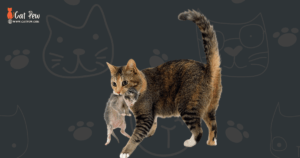
If you suspect that your cat has eaten her kittens, it is crucial to seek veterinary assistance immediately. Early intervention can be essential in determining the cause and providing appropriate care for your cat’s well-being.
Consulting A Veterinarian For A Professional Opinion
Before jumping to conclusions, it is crucial to seek veterinary assistance when you suspect that your cat may have eaten her kittens. Veterinarians are highly trained professionals who have the expertise to accurately diagnose and address such situations. They can provide you with the necessary guidance and support during this challenging time. Scheduling an appointment with a veterinarian should be your top priority if you notice any unusual behavior or if you are concerned about the well-being of the mother cat and her kittens.
Discussing Possible Reasons For A Cat Eating Her Kittens
While it is heartbreaking to think that a mother cat would eat her kittens, there can be underlying reasons behind such behavior. Understanding these reasons can help you address the issue effectively. Some possible causes for a cat eating her kittens include:
- High-stress levels: Stress, whether it be caused by environmental changes, the presence of other animals, or a lack of resources, can affect a cat’s maternal instincts.
- Infection or illness: Medical conditions like mastitis or a uterine infection can lead to a decrease in a mother cat’s ability to care for her kittens, potentially resulting in her eating them.
- Inadequate maternal instinct: Although rare, some cats may lack proper maternal instincts due to genetics or previous traumatic experiences.
- Inexperience: First-time mother cats may not possess the necessary knowledge or skills to care for their litter, leading to them mistakenly harming or consuming their kittens.
Exploring Treatment Options For The Mother Cat
When faced with a mother cat who has eaten her kittens, it is essential to explore treatment options that prioritize the cat’s well-being while preventing any further harm. Here are a few possible treatment options to consider:
- Providing a calm and stress-free environment:
Creating a serene environment should be a priority. Remove potential stressors such as loud noises or excessive activity that could further agitate the mother cat. Ensure she has a comfortable and secluded space to rest and recover.
- Receiving veterinary care:
A qualified veterinarian will conduct a thorough examination to determine the cause of the cat’s behavior. Depending on the diagnosis, appropriate treatment, such as antibiotics or supportive care, will be provided to address any underlying medical conditions.
- Supporting the mother cat emotionally:
Offering emotional support can help the mother cat regain her confidence and maternal instincts. Spend time with her, provide gentle reassurance, and engage in soothing activities like brushing or soft music.
- Preventing future occurrences:
If her behavior is related to stress or inexperience, taking preventative measures in the future can minimize the risk of a reoccurrence. Consult with a veterinarian or animal behaviorist to develop a plan tailored to your cat’s specific needs.
Remember, it is crucial to consult a veterinarian for professional expertise when faced with a mother cat who has eaten her kittens. They will guide you through the necessary steps to take to ensure the best possible outcome for the cat and her future litter.
Frequently Asked Questions For How To Know If A Cat Ate Her Kittens
How Can You Tell If A Cat Ate Her Kittens?
Typically, a mother cat will not eat her kittens. However, if you suspect this has happened, signs include missing or lifeless kittens, blood around the mother’s mouth, and grooming excessively. It’s crucial to monitor the mother cat closely and seek veterinary assistance if needed.
Why Would A Mother Cat Eat Her Kittens?
Although rare, a mother cat may eat her kittens to survive due to stress, illness, or insufficient maternal instincts. Factors such as young age, fear, perceived danger, or a bacterial infection can contribute to this behavior. Veterinary consultation is essential to address the underlying cause.
Can A Cat Accidentally Kill Her Kittens?
Yes, accidental kitten deaths can occur, mainly if the mother is inexperienced, stressed, or unwell. Cats can accidentally smother kittens during grooming or while trying to move them. Providing a calm and safe environment, along with regular vet check-ups, can help prevent such tragic accidents.
Conclusion
To sum up, understanding if a cat ate her kittens can be a distressing situation for any cat owner. By closely observing behavioral changes, monitoring physical signs, and seeking professional advice, you can determine the truth behind this unsettling question.
Remember, maintaining a loving and safe environment for your cat is essential to ensuring their overall well-being. Stay vigilant and address any concerns promptly to ensure the best care for your feline companion.

Winston
I'm Winston, the author of this feline-focused (Catpew.com) blog . My love for cats goes back to my childhood, when I spent countless hours playing with my family's tabby, Mittens. This furry friend instilled in me a deep appreciation for the unique personalities, playful nature, and unconditional love that cats offer.

